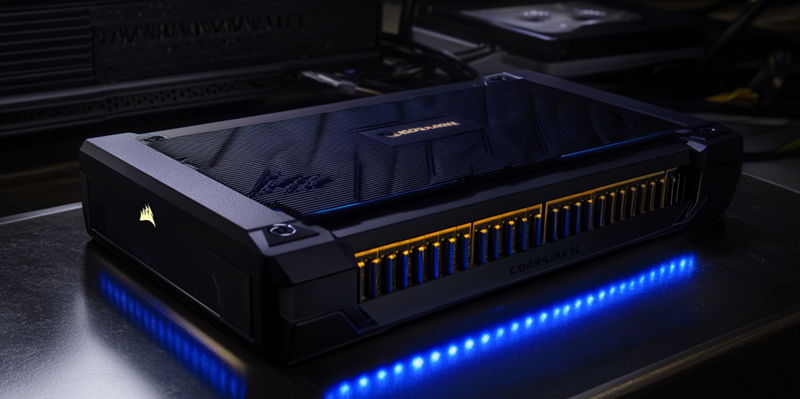SK Hynix, a South Korean semiconductor giant, has recently showcased its unparalleled dominance in the AI memory market, particularly in the realm of High Bandwidth Memory (HBM). The company’s recent financial results have underscored its leadership, marking record profits due to an increasing demand for AI-specific memory solutions. This surge is mainly fueled by large-scale orders from prominent industry leaders such as NVIDIA. The story of SK Hynix’s rise in this highly competitive sector is a testament to its strategic market positioning, innovative technology, and effective capitalization on emerging opportunities.
Financial Triumphs and Market Positioning
Record-Setting Profits Reflecting AI Demand
The latest financial quarter for SK Hynix was marked by significant milestones, driven largely by the "explosive" growth in demand for their AI-oriented memory solutions. The company reported an astounding operating profit of 7.03 trillion won, equivalent to $5.1 billion, and total revenue of 17.6 trillion won, or $12.75 billion. These figures represent nearly double the earnings from the previous quarter, highlighting SK Hynix’s remarkable capability to attract and satisfy the needs of leading AI enterprises. The firm has expertly capitalized on the demand surge for high-performance memory, making it the near-monopolistic force within the AI memory market.
By leveraging its advanced High Bandwidth Memory (HBM) technology, SK Hynix has managed to outpace its competitors significantly. Its HBM solutions, notably the HBM3E and the forthcoming HBM4, are highly sought after by AI giants aiming to elevate their computing capabilities. The advancements in these memory technologies have positioned SK Hynix as the primary supplier for businesses prioritizing speed, efficiency, and performance in their AI applications. The strategic foresight of SK Hynix’s investments in innovative memory solutions has thus paid off, securing it a dominant role in the current epoch of AI-driven technological progress.
Competitive Landscape and SK Hynix’s Strategic Gains
In a market teeming with formidable players like Samsung and Micron, SK Hynix’s triumphs are more than just significant—they reflect a well-charted path of strategic and technological advancements. While Samsung and Micron have faced hurdles in fully leveraging the opportunities within the AI memory market, SK Hynix has relentlessly expanded its influence, capturing the majority share thanks to its superior offerings and timely market engagement. This sharp contrast in market performance illustrates the critical importance of cutting-edge technology, backed by substantial research and development.
The near-monopoly status of SK Hynix in the AI memory market is also reinforced by the company’s extensive and forward-looking investments into research and development. By committing substantial resources to the continuous evolution of memory technologies, SK Hynix has ensured that its solutions remain at the forefront of industry standards, catering specifically to the exponentially growing requirements of AI applications. This preparedness and responsiveness have enabled SK Hynix to not only meet existing demand but also anticipate future needs, thereby reinforcing its dominance in an increasingly competitive arena.
Future Prospects and Market Strategy
Long-Term Contracts and Revenue Projections
Looking ahead, SK Hynix is poised to maintain its leadership in the AI memory market through strategic long-term contracts and innovative advancements in HBM technologies. The firm already has contracts in place that extend through 2025, providing a stable and predictable revenue stream which is invaluable in an industry characterized by rapid technological shifts. These contracts underscore the confidence that leading AI companies place in SK Hynix’s ability to deliver high-performance memory solutions that meet their evolving needs.
Additionally, industry insiders project even higher revenues for SK Hynix in the coming years, driven by the increasing Average Selling Prices (ASPs) for their high-bandwidth memory products. As demand continues to rise, particularly for advanced AI applications, the value and pricing power of SK Hynix’s HBM solutions are expected to enhance profitability further. The convergence of these factors—long-term contracts, next-gen memory technology, and escalating ASPs—paints a promising picture for SK Hynix’s future in the AI memory sector.
Challenges for Competitors and SK Hynix’s Competitive Edge
SK Hynix, a major player in South Korea’s semiconductor industry, has recently showcased its formidable influence in the AI memory market, particularly in High Bandwidth Memory (HBM). Their recent financial performance highlights their industry leadership, with record-breaking profits driven by a surging demand for AI-specific memory solutions. This demand spike is primarily due to substantial orders from major industry players like NVIDIA. The tale of SK Hynix’s ascendance in this fiercely competitive sector spotlights its strategic market positioning, pioneering technology, and adeptness at capitalizing on emerging opportunities. The company’s success underscores its ability to innovate and meet the evolving needs of the AI sector, reinforcing its repute and solidifying its market dominance. By continually pushing the boundaries of what’s possible in semiconductor technology, SK Hynix stands as a beacon of excellence and forward-thinking in the industry, showing that through strategic vision and technological prowess, leading the pack in AI memory is well within reach.

